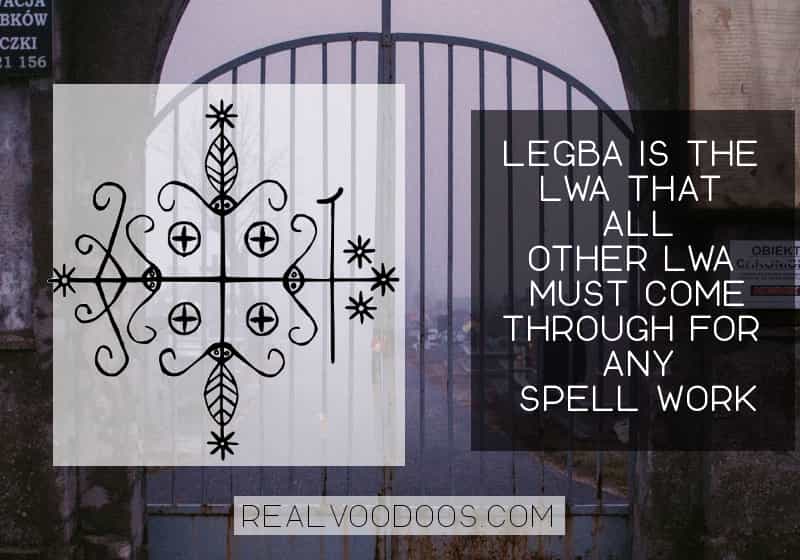The Lwa Papa Legba, Keeper of the Crossroads
If you’ve run across Voodoo tales in the popular media or Hollywood movies, you may have come to associate Voodoo spells with the crossroads. Indeed, Voodoo and rituals at the crossroads, deals with spirits or spells for power, go hand in hand. Papa Legba is the reason for this. Legba is the main gatekeeper of the crossroads in Voodoo. The meaning of the crossroads goes deep.
First, we refer to the physical crossroads. The actual points in the road where two paths cross. Papa Legba is the Lwa who controls and oversees all physical intersections. These become the prime locations for rituals where Legba features centrally. More importantly, we also refer to the spiritual crossroads: the gateway between the living and the dead.
Because Papa Legba is the intercessor or intermediary between the living and the dead - because he is said to hold the keys to the gates - Legba is a spirit that features prominently in all spell work and Voodoo rituals. It doesn’t matter if it is a protection spell, a curse, or a passion spell. Legba will need to grant permission to most Lwa, particularly any of the minor spirits, to come through the gate and help. As such, Legba is the first step to differentiating between a spell that works and a spell that does not work. Ignoring Legba is a sure path to failure.
Legba's Appearance
Papa Legba most often appears as an elderly man on crutches. This may remind you of St. Lazarus, with whom he is syncretic. If you have come to Voodoo through other African traditions, such as Santeria or Candomble, or even Obeah, you may recognize the spirit on crutches as Babalu-Aye as well. You may recognize him as Elegua. We see this figure appear in different forms across world religions. This is expected, as Legba is such an incredibly important spirit.
Legba is associated with dogs and often appears with his dogs in tow. Again, we see this with St. Lazarus. A minor role of Legba is therefore the protection of pets, specifically dogs. If you have ever felt a special affinity with dogs, or if you have ever wanted a spell to protect your pets, Legba has noticed you. He has a special favor for those who love dogs.
Papa Legba is also the direct messenger and intermediary between the other Lwa, mankind and Bondye - from the French Creole bon dieu - or God. Although Voodoo does not have a single savior figure as in Christianity, this does invoke similarities between Papa Legba and Jesus. So far, we have seen that he is the keeper of the gates between life and death. Now we see that he is also the intermediary between man and God.
Traditionally, Legba is included in every spell and ritual. He is offered a sacrifice before every act of Voodoo. If you have ever wondered why Voodoo spells seem to take so long, or why they can become quite costly in resources and time, this is one reason: the need to petition many different spirits for one goal. In practice, Legba is not actually invoked in every single spell. A few of the more powerful Lwa (like Ayizan) have the power to open the gates for themselves. However, Legba is invoked in most spells.
Legba's Offerings and Services
Legba’s colors are most often white and brown. However, depending on the nature of the ritual or service Legba can be served in any color. He often appears with a pipe, for this reason tobacco or a whole pipe are appropriate offerings for Legba. Any tobacco may work, cigarettes and cigars are fine, but pipe tobacco is best. Small statues of St. Anthony or of St. Lazarus can be presented to the altar of Legba as an offering. They can also be the centerpiece of an altar to Papa Legba for a smaller service.
The straw hat is associated with Legba and he may appear with one. As such, it is traditional for Vodouisants “ridden” by Legba to wear straw hats. It is also traditional to present full sized and small straw hats as offerings to Legba’s altar.
The burlap sack, worn on the back, is associated with Legba. In this he carries both implements for work and sweets for children. Here we can see the relationship between Legba and Ayizan - Ayizan being a Lwa who also bares sweets for children. Legba, with tools and sweets, is one of the Lwa who is also a protector of children and of workers.
Clean water, coffee, white rum and gin are all appropriate liquid offerings for Legba. Keys are a common adornment of the altars of Legba and may be presented as offerings - remember, Papa Legba holds the keys to the crossroads, to life and death, and to spell work. Legba loves white candles best. Red beans, cooked chicken, banana and curry goat are all common food offerings. Popcorn, as well as any form of toasted corn, is probably the most common and simplest food offering to Legba. For a small service or home altar, you can quite literaly prepare Legba’s most traditional food offering with two minutes in the microwave!
Prayers And Songs To Legba
Any formal prayer to St. Lazarus or St. Anthony can be given to Papa Legba. A traditional prayer to Papa Legba in Voodoo is:
Atibon, Legba!
Hear My Prayers Great Father!
Atibon Legba!
Intercede for me in my prayers and carry them to heaven.
Atibon Legba!
Let my prayers reach all those whom they must.
Great Opener of Roads, I ask that you give me your blessing.
In all of my endeavors, Legba, give me your blessings.
I offer up my prayers to you and light
So that you may guide me to creation and my destiny.
A short oration to Papa Legba in Haitian Creole:
O Legba, O marche donc
Marche donc Papa Legba, marche donc
Marche donc
Papa Legba qui sortie nan la tournin
In English:
O Legba, walk fast
Walk fast Papa Legba, walk fast
Papa Legba has come from a journey
Walk fast
This chant is performed when Legba begins to appear in a Voodoo rite or service. It is used to greet Legba. Here we see the theme of Legba as the Lwa of the crossroads, as he is walking fast on them, and Legba as the gatekeeper and Lwa of the crossroads. When you traverse a road to or from a journey, it is Legba that looks over you. This is also why Legba is called upon specifically in protection spells for travel.
It is not uncommon to hear Papa Legba referred to as Vye Legba, meaning old Legba, at times. All of the most powerful Lwa are associated with age. This is expected, as we have seen that Legba appears as an elderly man. Legba is also occasionally called Gran Chemin, or The Great Road. In this sense, we refer to Legba both as the keeper of the road, in addition to being the road itself
Legba of the Mirror
Another name Legba goes by is Legba do Mirwa, or Legba of the Mirror. You may have seen altars to Legba with mirrors. A mirror is also symbolic of a crossroads between the spirit world and the material world. Not only is a mirror symbolic, but a mirror is itself a magical item that can be used to act upon the spirit world. A little secret, mirrors are commonly used in protection spells and spells to break a curse in Voodoo. These spells of course have Legba as a central Lwa.
Legba is a Lwa of divination and of revealing the truth. The mirror plays a further role here. You may have heard the expression “hold a mirror to the truth.” This is a very real part of spell work with Legba. Mirrors are used in Voodoo rituals to expose liars, to reveal the truth, or to predict the future. Mirrors are used to see the unseen and reveal what has been hidden.
We can see Papa Legba’s nature of both revealing the truth and opening the gateway in this chant to Legba:
In Haitian Creole:
Papa Legba makout la lan do-ou
Se oun mem ki lan bye
Ovri chimen yan pou mwen
Papa Legba inosan navyo
O Legba si, O legba se
No Prale Yewe
In English:
Papa Legba, the strawsack on your back
You are the one at the gate
Open the way for me
Papa Legba, innocent and pure
O Legba si, O Legba se
We are going home
Legba’s Veve Explained
Take a moment to examine the Veve, or the ritual drawing, of Papa Legba. Most Veve intuitively show some feature of the Lwa they represent. This is because a Veve is more than a symbol, it provides a literal spiritual pathway for the Lwa to cross over. Papa Legba’s Veve is fundamentally a cross - the center point is a crossroads. The top and bottom are a mirror image - again we see the mirror motif. This is also reflective of an occult principle described as: As Above, So Below. The spiritual and the material world are mirrors of one another. At the four corners of the crossroads are four points, representing the four “corners” of the world. From left to right, we see the form of an arrow, pointing a direction: this is Legba of the journey, the one who gives directions, pointing you where to go.
If you have questions about Legba, or if you are interested in any spell work that relies on Papa Legba’s help - protection spells, a spell to break a curse, a travel spell, a healing spell - you are invited to contact me. I love teaching people about Voodoo and I love helping people with spell work.
Yours,
Emmanuel A.E.






